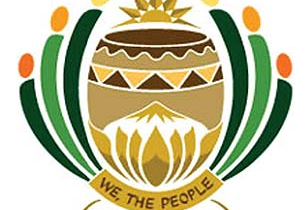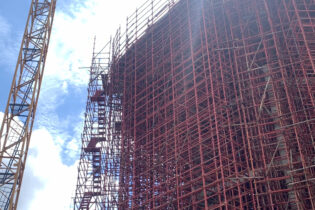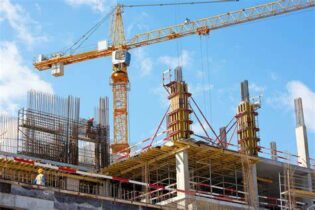The Minister of Water and Environmental Affairs, Ms Edna Molewa has arrived in Doha for the 18th United Nations Framework Convention on Climate Change Conference, or CoP 18/CMP 8. Molewa said that “South Africa regards the global climate change response as part of sustainable development agenda and not just a purely environmental issue.”
COP 18/ CMP 8 talks started on 26 November and will end on 7 December the Qatar National Convention Centre, with the high-level segment having started on 4 December. Minister Molewa is joined at the COP by the Deputy Minister of Water and Environmental Affairs, Ms Rejoice Mabudafhasi. The CoP is a platform where the international community of nations negotiate the next steps that need to be taken to ensure an effective global response to the global challenge of climate change. “An effective global solution to the climate change crisis involves the negotiation of delicate balances and trade-offs between a wide range of extremely complex, highly political and sometimes conflicting set of social, economic and environmental development issues,” said Molewa. She added that South Africa needs a strengthened international climate regime that ensures global reductions in greenhouse gas emissions in accordance with what is required by science. “To this end, we need to ensure that the impacts of climate change do not undermine development in our own country, the African continent and the world at large.”South Africa’s engagement at CoP18 / CMP 8 is further informed by the outcome of CoP17 / CMP 7 held in Durban, December 2011, where Parties agreed to a three-pronged approach: firstly, implementing urgent action now, from 2013 to 2020, including the adoption of a second commitment period under the Kyoto Protocol and a number of institutional mechanisms such as the Green Climate Fund; secondly, having acknowledged the inadequate commitments to reduce emissions made thus far, a work programme was agreed to increase current pre-2020 levels of ambition; and thirdly, action for the future with the negotiation of a legal agreement for the period beyond 2020.
To achieve this, last year’s Durban talks decided that negotiations under the two tracks, namely under the Kyoto Protocol track, and under the Convention track, taking place in the Ad-hoc Working Group on Long-term Co-operative Action for the 2013 to 2020 period should be concluded in Doha and an Ad-hoc Working Group on Durban Platform for Enhanced Action (ADP) to address the mitigation pre-2020 ambition work programme and to negotiate the future legal instrument coming to effect in 2020 should be established. Within this context, South Africa is of the view that CoP 18/CMP 8 is an implementation CoP. Doha should therefore seek to operationalise all the work mandated by the Durban Conference. This includes the implementation of the second commitment period of the Kyoto Protocol, through finalising legally binding commitments for Annex I countries and subsequent adoption of the amendments to Annex B of the Kyoto Protocol. This will lead to entry into force of the second commitment period of the Kyoto Protocol in January 2013. The Kyoto Protocol is the only existing rules-based and binding agreement under which developed countries committed to the reduction of greenhouse gases. South Africa views the implementation of the second commitment period of the Kyoto Protocol as the cornerstone of the Doha agreement. This agreement is important to South Africa and all developing countries. It is the responsibility of CoP 18/CMP 8 to decide on how to deal with all issues that do not find satisfactory resolution by the end of 2012. However, what is clear is that all the necessary arrangements for mitigation and finance are clarified in Doha, including operationalise all agreed to institutions.





